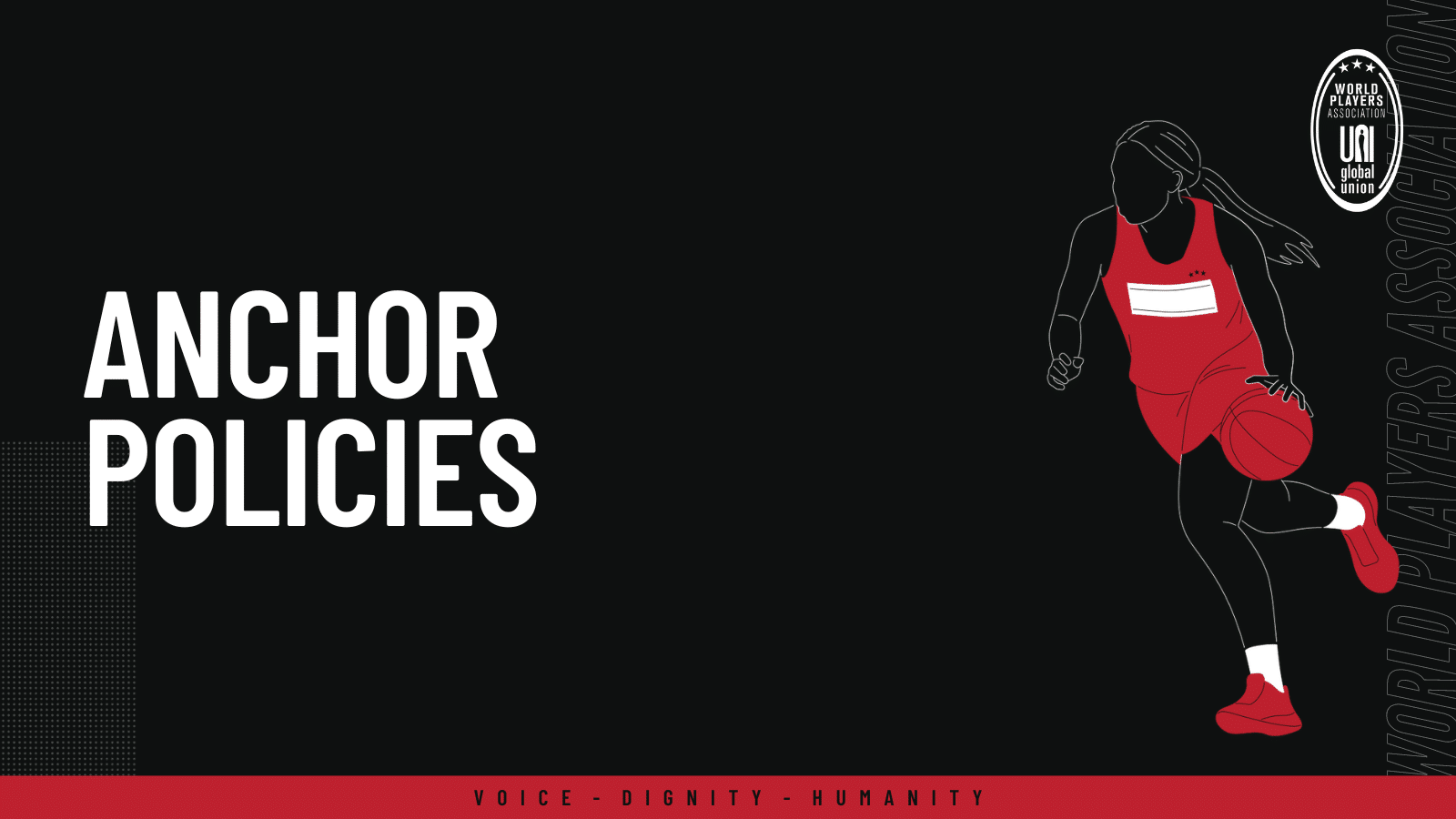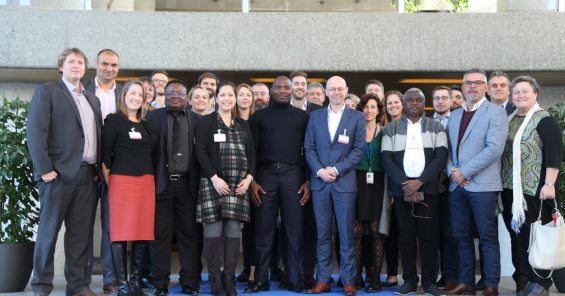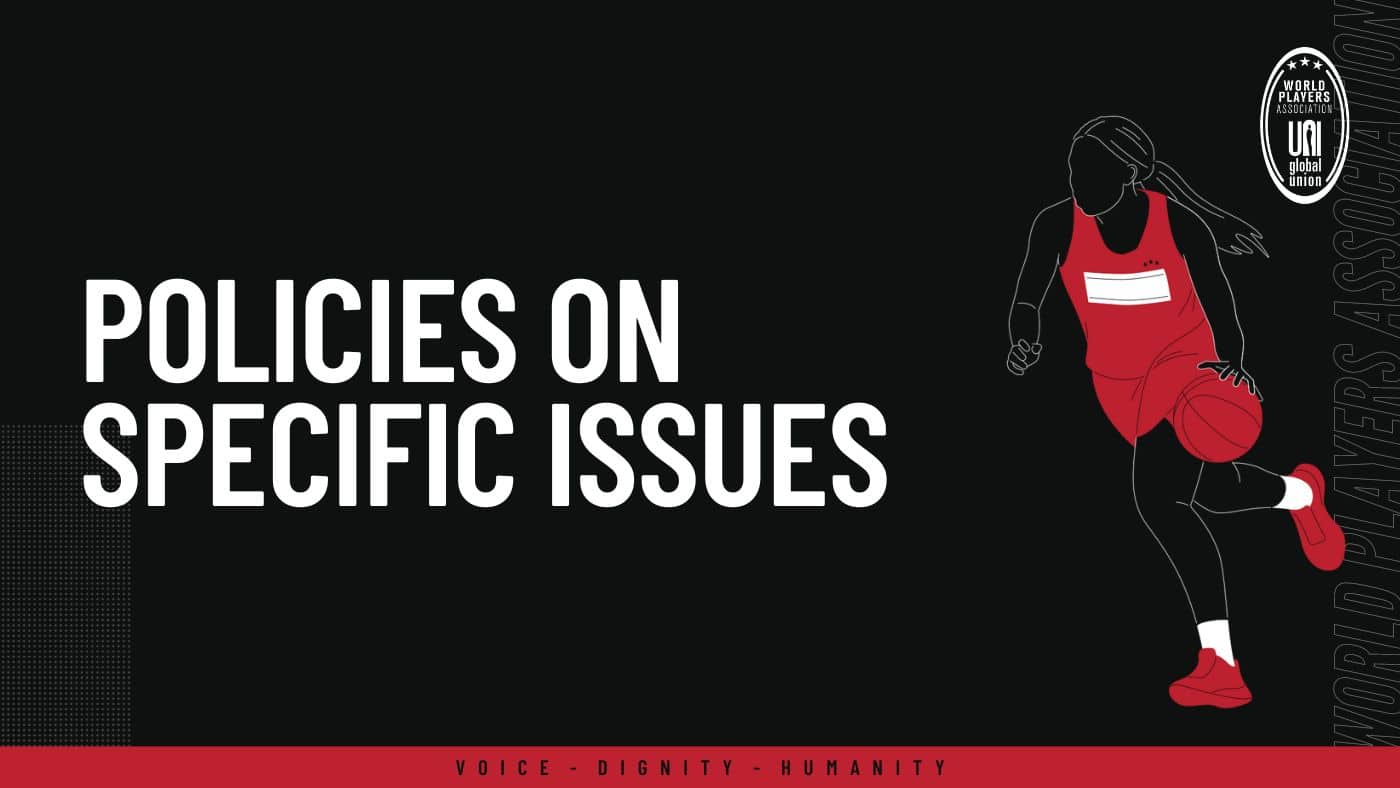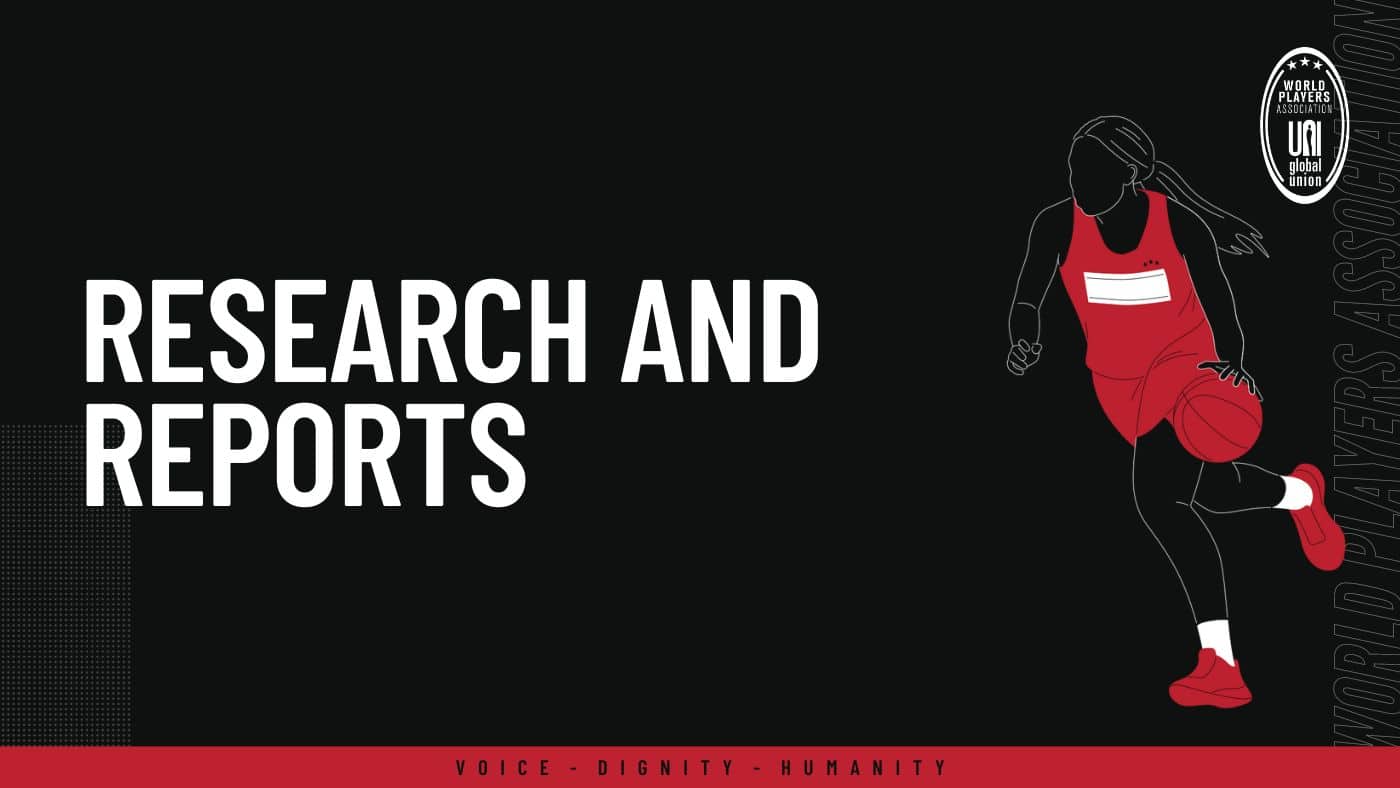KEY POLICIES AND REPORTS

UDPR is the first comprehensive articulation of athletes' rights and sets the benchmark for international sporting organisations to meet their obligations to guarantee the fundamental rights of player
The World Player Rights Policy details what sports bodies need to do to embed and embrace their responsibility to respect the internationally recognised human rights of player
The World Player Development, Wellbeing, Transition and Retirement Standard is the first instrument of its kind and a benchmark for the development, negotiation and measurement of player development and wellbeing services across sport.
In 2011, player associations from around the world came together in Nyon, Switzerland, and expressed their commitment to having an equal say at global sport's key tables of influence and power
The global anti-doping movement, including the World Anti-Doping Association (WADA), has faced many challenges since its inception. World Players has developed various policy positions and championed proactive reforms to address the underlying root causes of these challenges.
Women's sport continues to lag behind men's sport in many areas. World Players' Gender Equality Principles identify the necessary steps to overcome gender discrimination and achieve equality.
World Players' policies outline necessary action areas to make sure children are safe in sport and provide a benchmark for structures established to effectively respond to abuse.
Just like all other workers, players and athletes have a right to form and join player associations and unions and to collectively bargain. World Players' Freedom of Association Policy outlines what must be done to embed freedom of association and the right to organize in global sport.
World Players' Athlete Activism Policy outlines how global sport must embrace and respond to athlete activism and how it can be a driving force for the reconciliation of sport and human rights.
Players are both the labour and the product of global sport. World Players’ Economic Rights Policy outlines five key requirements for sport to embed players’ economic right.
Access to effective remedy in sport is an essential precondition for the practical protection of player rights. World Players' policies outline the necessary requirements to achieve the overdue transformation of global sport’s justice system and ensure players can achieve justice where their rights have been violated.
Covid-19 was a critical period for the global player association movement, highlighting the importance of player association solidarity, support and sharing best practices. The Covid-19 resources developed by World Players consolidated the key experiences and learnings of player associations and leading experts.
While emerging new technologies can create new opportunities for players, the uncontrolled collection of player data also bears risks to players’ privacy and well-being. The World Players' Player Data Protection Principles provide a player-centred framework for sports bodies to adopt concerning the use of player data.
The World Players 2021 Census of Athlete Rights Experiences (CARE Report) details the results of the first global study on elite athletes’ experiences in sport as children.
World Players’ biennial reports on the “Economics of International Sport Governing Bodies” analyses the most current financial information from major sports bodies and compares it to the earnings of athletes.
Human Rights Watch’s report "‘I Was Hit So Many Times I Can’t Count’: Abuse of Child Athletes in Japan", done in partnership with World Players” highlights the issue of physical, sexual and verbal abuse suffered by child athletes in Japan.


